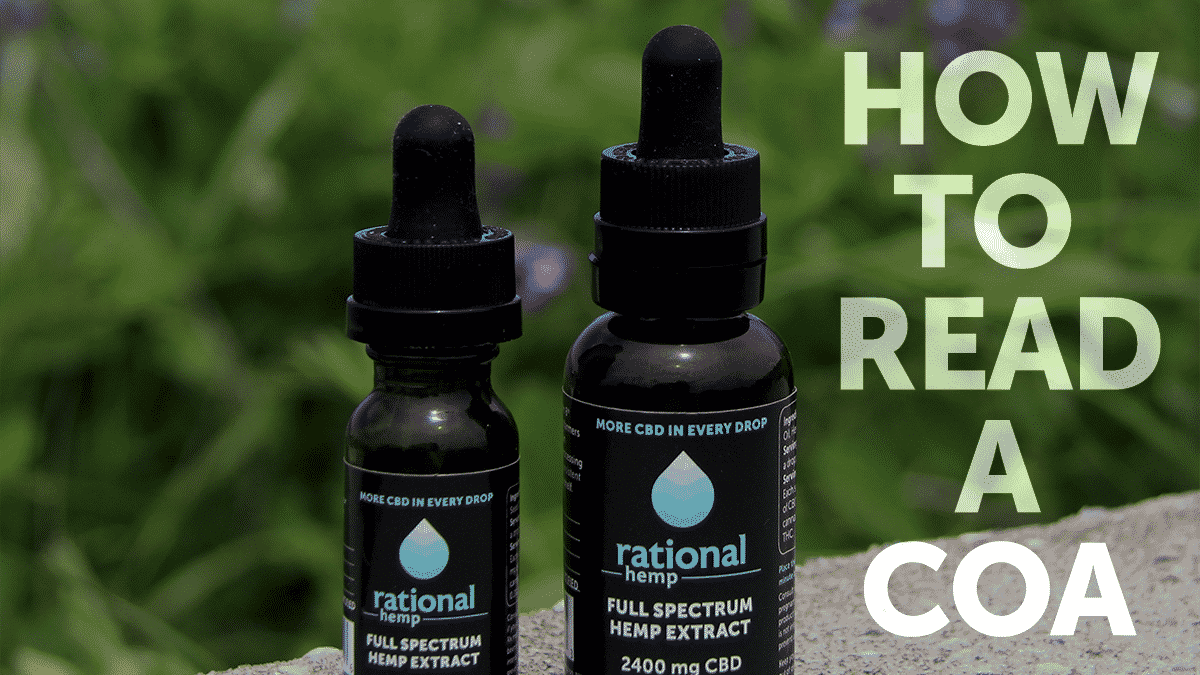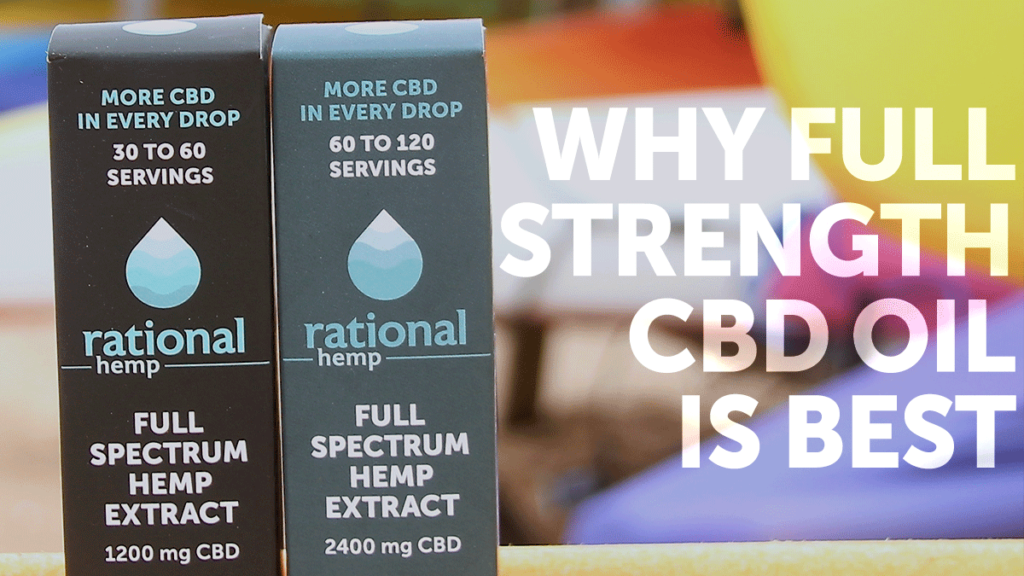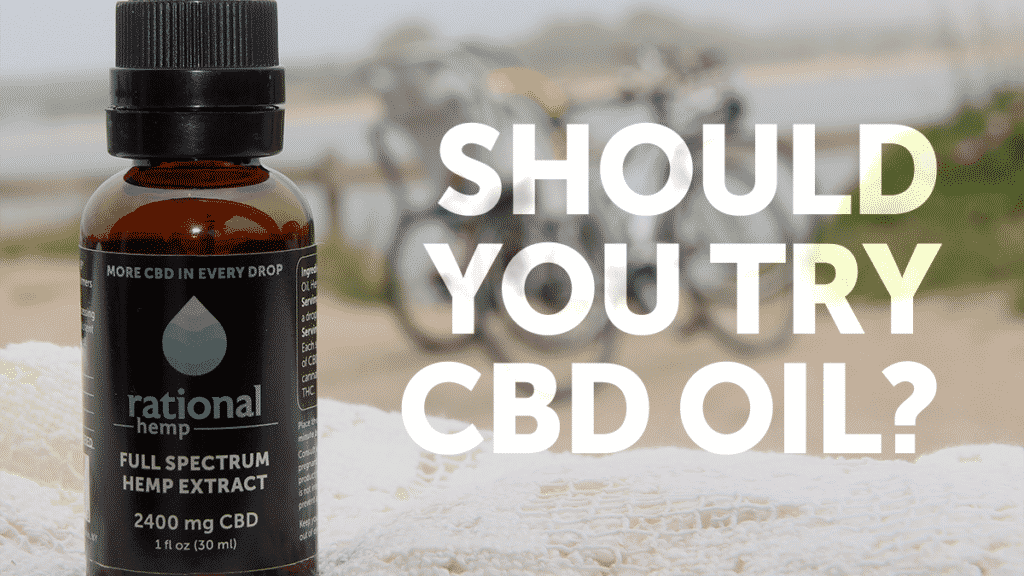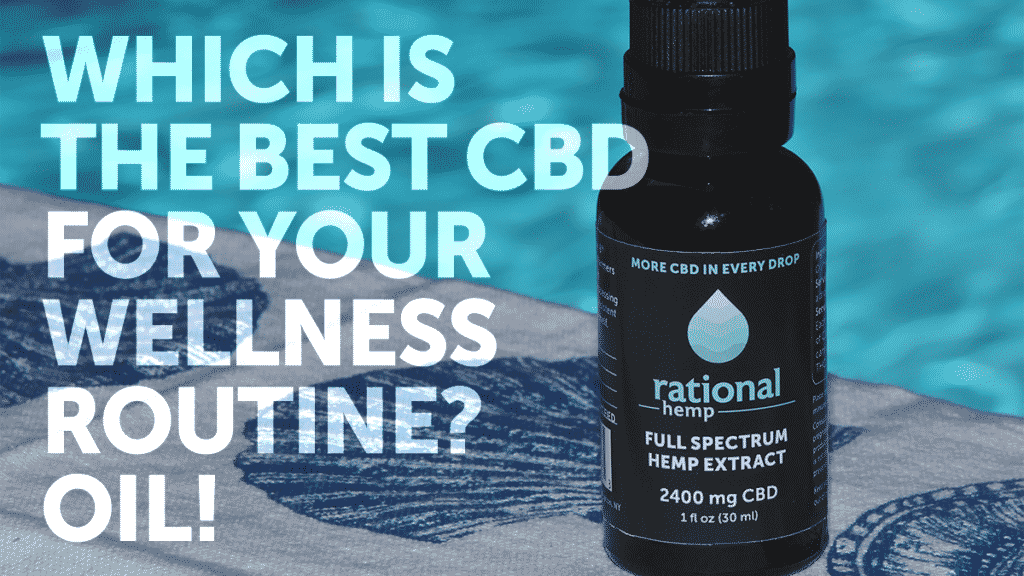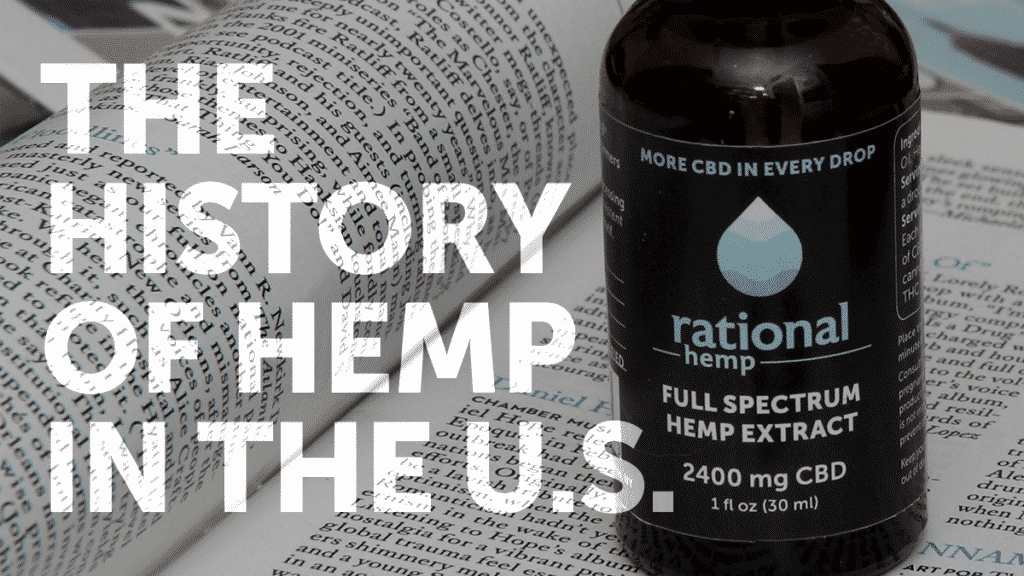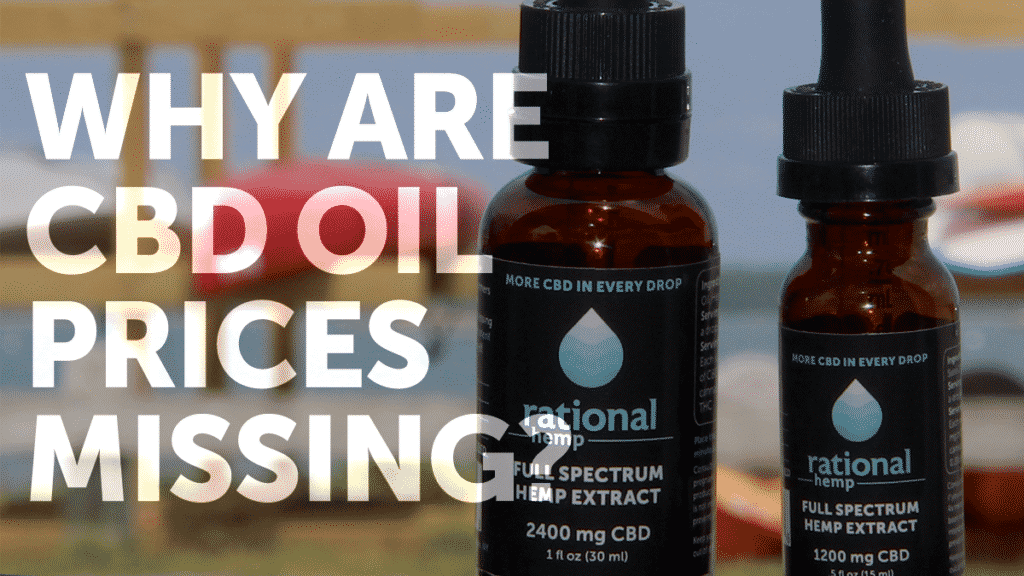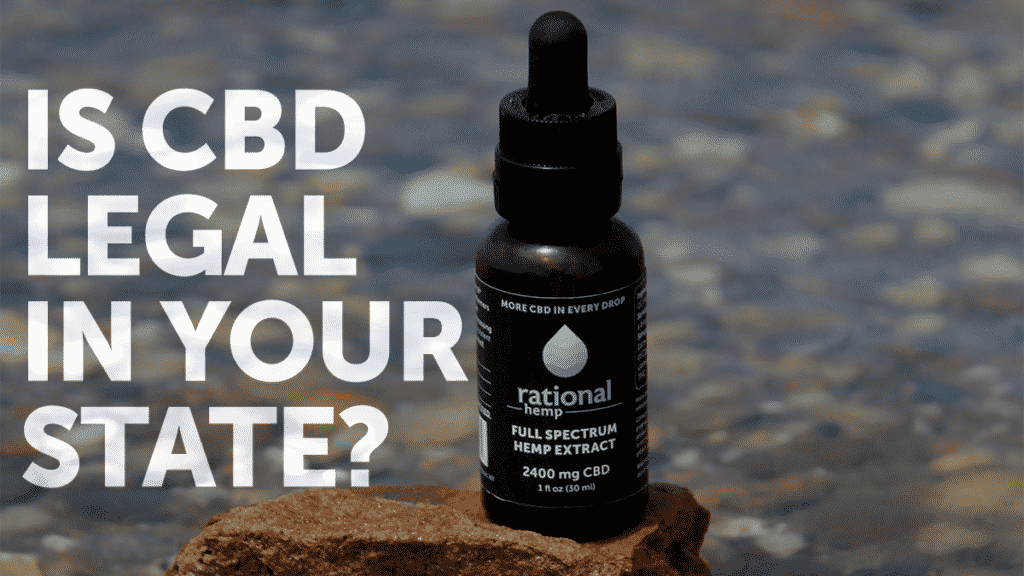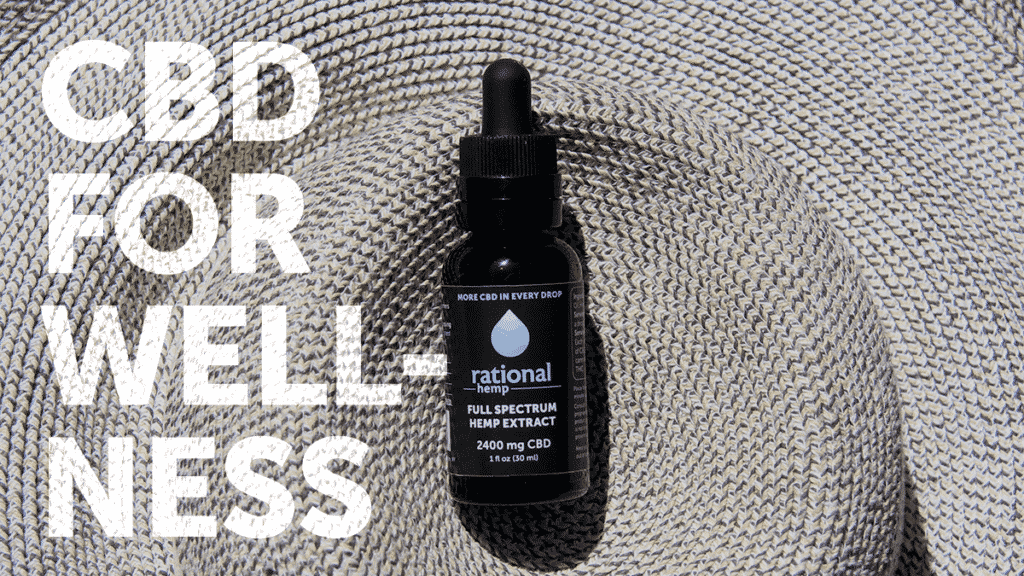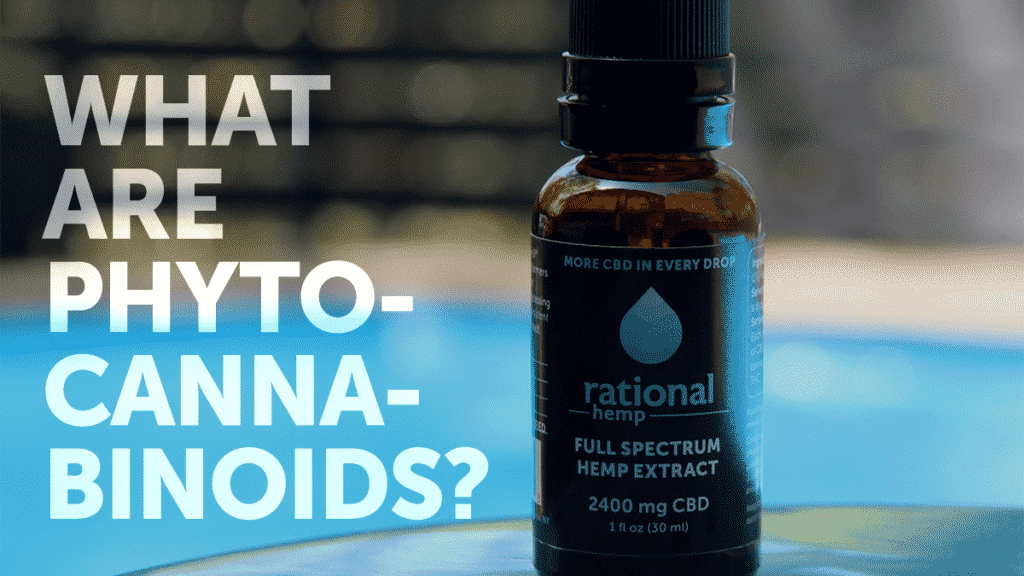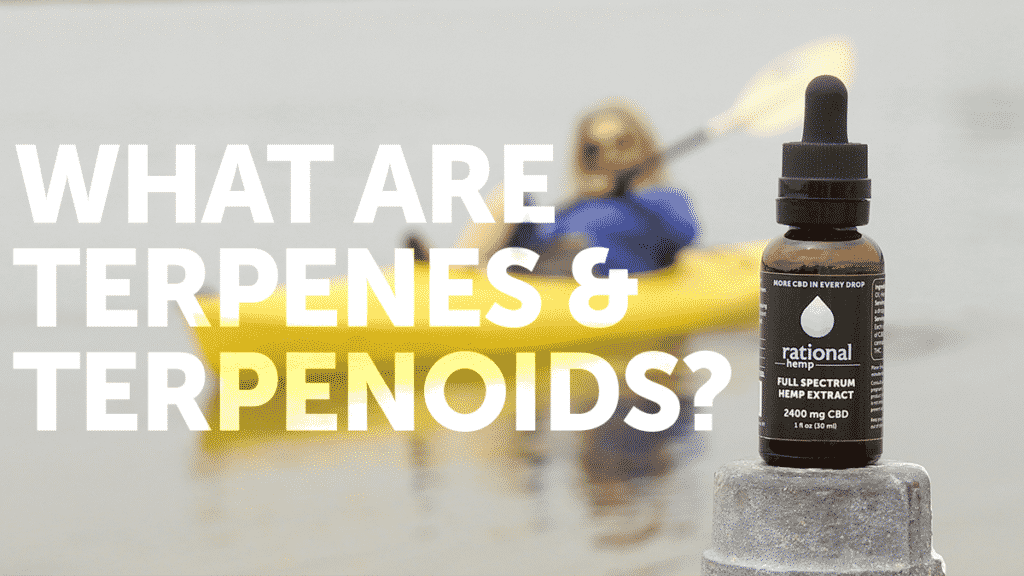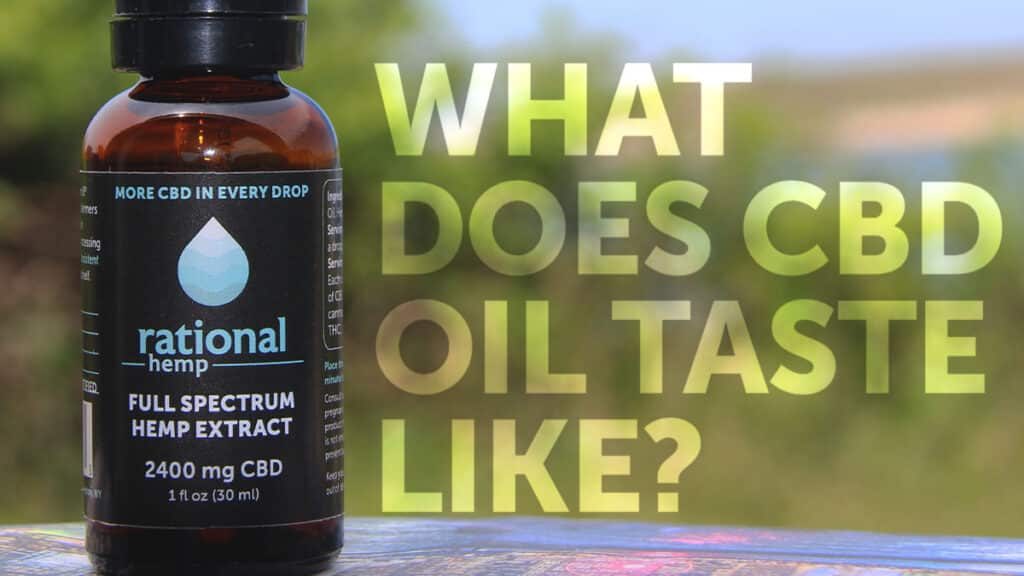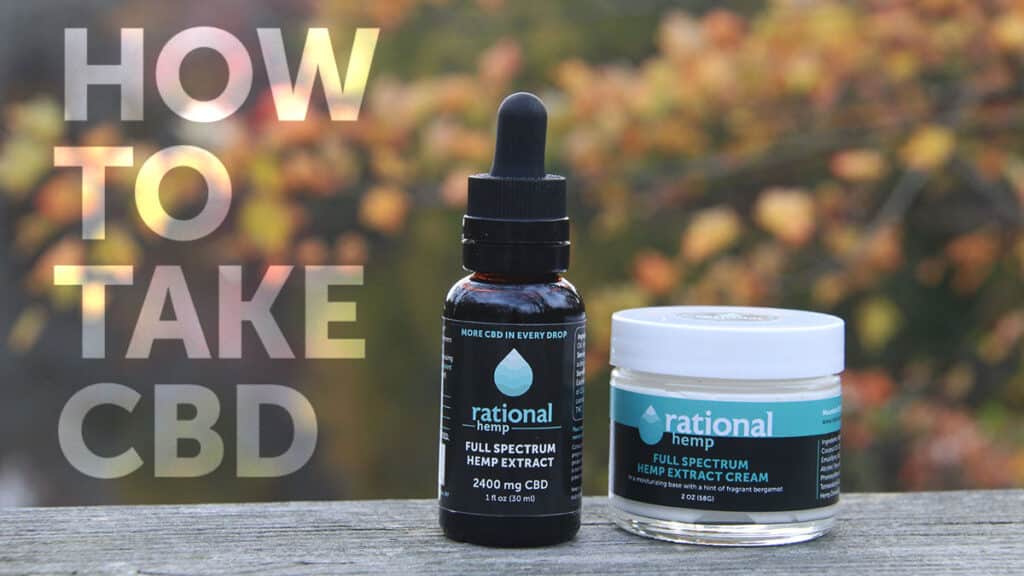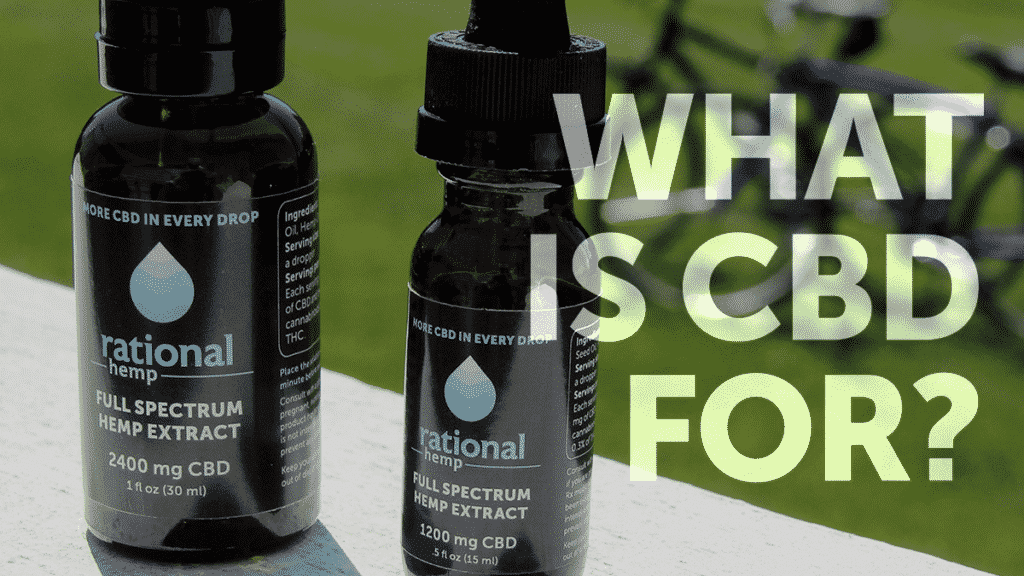When shopping for CBD products, one thing that’s a MUST is making sure whatever product you buy comes with a Certificate of Analysis (COA). Understanding how to read a Certificate of Analysis will ensure that you know exactly what you’re purchasing rather than simply trusting the company label, which studies have shown are often inaccurate.
If you want to be sure of what’s in the bottle, purchase only from companies that provide COAs readily. Rational Hemp’s Full Spectrum Hemp Extract is always third-party lab tested by highly-respected labs, and you can see all our COAs here. Just check the bottom of your bottle to see your batch number and view results. There’s also a QR code on the packaging that will take you straight to the COA page.
Never purchase or consume a product that does not have a COA available. They are designed to ensure that the product you are consuming is safe and accurately labeled. Reputable companies will make COAs readily accessible. If you can’t find the COA for a product you are considering, reach out to the company to ask for one.
WHAT’S IN A CERTIFICATE OF ANALYSIS?
The exact contents of a COA can vary depending on which lab tested the product, but generally, a COA should include the following:
- Details about the testing lab and when the testing was completed
- Information about the brand and product being tested
- Potency analysis of the ingredients contained in the product, including cannabinoids and sometimes terpenes
- Contamination testing for heavy metals, pesticides, molds, and bacteria
HOW TO READ A CERTIFICATE OF ANALYSIS
COAs can feel overwhelming if you’ve never looked at one before. We’ll take you step-by-step through a recent COA from Kaycha Labs to help you better understand what you’re reading.
Basic COA Information
Above is the first thing you’ll see in a COA – the header section with all the basic information about the lab, testing company, and product:
- Information about the testing lab. In this example, we used Kaycha Labs, located in Central Point, OR.
- The company for which the testing was completed (Rational Hemp!)
- Matrix = the type of product tested. In this case, the COA is for our Full-Spectrum CBD Tincture / Oil. Kaycha also provides a photo of the product tested on the right.
- Batch ID = the specific product batch being tested. This ID will be included on a sticker on the bottom of your bottle and should match whichever COA you are viewing.
- Date Accepted = the date the product was received and testing began
Cannabinoid Analysis
Next up, we have the Cannabinoid Analysis. This shows which cannabinoids were detected in the product. This batch of oil contained five detectable cannabinoids: delta 9-THC, CBDA, CBD, CBG, and CBC. As you can see, CBD is the most prevalent cannabinoid, and our THC percentage is at 0.186%, which is below the federal limit of 0.3%.
Another term to know here is LOQ, or Limit of Quantitation, which is the lowest possible concentration that can be detected and accurately reported. In some columns, you’ll notice that instead of a number, “< LOQ” is listed. This simply means that the minimum level for detection was not met for that cannabinoid.
Learn more about cannabinoids here.
Terpene Analysis
Not all COAs include a full terpene analysis, but the COAs from Kaycha Labs do. This section of the report looks very similar to the cannabinoid profile and identifies all terpenes detected. In this batch, 10 terpenes were found: Guaiol, Caryophyllene Oxide, beta-Farnesene, alpha-Bisabolol, Fenchyl Alcohol, trans-Caryophyllene, alpha-Humulene, alpha-Farnesene, Cedrol, and Terpineol.
Learn more about terpenes here.
Pesticide Testing
COAs from Kaycha Labs are full lab reports, meaning that they analyze not only the cannabinoids—but also possible contaminants. Above, you can see all the pesticides that Kaycha tested for—all of which were not detected (ND) in the product.
Residual Solvent Testing
When CBD products are processed, solvents are used to aid in the process. Kaycha tests our products for residual solvents—as in, solvents that are left over after processing is complete. Some solvents are more volatile, while others are considered safe to use due to low toxicity. From this COA, you can see that our products are below the LOQ for all tested residual solvents.
Microbials & Mycotoxins
Finally, COAs should test for and report on contamination from microbials (such as Salmonella) and Mycotoxins (produced by certain molds). The testing checks for microbials in the Aerobic Plate Count section, while Mycotoxins are checked in the Yeast and Mold Enumeration section. As you can see, the oil does not contain detectable amounts of any of these elements—and any product you purchase should also have received a passing score in all these areas!
Now that you know how to read a Certificate of Analysis, we hope that your search for the perfect product will be just a little easier. COAs are one of the most important factors when deciding which products to buy—and which ones to avoid. Remember, reputable companies will always be transparent and make it easy for you to access this information. If they’re not—don’t trust their products!
We hope also that we’ve convinced you that we take testing seriously and aim to provide customers with products that are only of the highest quality. If you’re convinced, why not give us a try? Head on over to the shop to browse our products or check out the blog to read more about CBD.
Rational Hemp is regulatory-compliant and contains trace levels of THC under 0.3%. While we know of no instance where a drug test came back positive after using our Hemp Extract, we cannot guarantee this result. Speak to a physician before using CBD if you are pregnant, nursing, or taking prescription medications.

